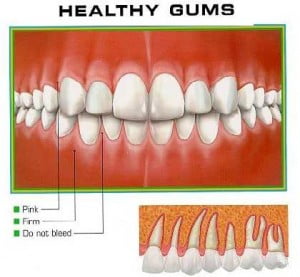Our Services

Periodontal disease, also known as gum disease, is an infection of the gum and bone surrounding the teeth. If left untreated, periodontal problems can become severe and may eventually lead to tooth loss. Periodontal disease is often painless and you may not be aware that you have a problem until your gums and the supporting bone are seriously damaged. The good news is that periodontal disease can be treated non- surgically in our office through a procedure called scaling and root planing (deep cleaning) along with medicines that are placed under the gum (Arestin) and laser pocket therapy.
Gum disease treatment
Treatment has a huge benefit to your mouth and your overall health. You will increase the chances of keeping your natural teeth along with improving your overall health. Research has shown that there is a strong association between periodontal diseases and other chronic inflammatory conditions such as diabetes, cardiovasc ular disease (heart disease), Alzheimer’s disease, stroke, osteoporosis, respiratory problems, and pregnancy problems.
What causes periodontal disease?
Plaque includes a film of bacteria that attaches to the teeth and gums. The bacteria in plaque cause irritation of the tissues that support your teeth. This irritation can lead to chronic inflammation, bleeding, and infection that can destroy your gum tissues and the bone surrounding your teeth. Plaque that is not removed from teeth will begin to calcify around the teeth and beneath the gums into a rough deposit called calculus. The only way to remove this build up is to have your teeth professionally cleaned at the dental office.
How does periodontal disease progress?
Gingivitis is the initial stage of periodontal disease. Gums become increasingly red and may appear swollen and may bleed easily, especially when brushing or flossing. With regular brushing, flossing, and professional cleanings, the condition is reversible at this stage. However, if left untreated, gingivitis may lead to a more serious condition called periodontitis.
If left to progress and continue to damage the bone and tissue surrounding the teeth, tooth loss can occur. In the worst case, teeth can become loose and need to be removed. However, periodontal treatment can help stop the disease from progressing to this point.
At Dental Health Care Associates, we evaluate every patient for periodontal concerns. During your initial visit, you will receive a series of digital x-rays that will allow the dentist and hygienist to evaluate the bone supporting the teeth. This, along with a visual clinical examination, will determine if you have periodontal disease and the course of treatment.
Periodontal disease often goes untreated because there usually is no pain associated with it. Here are some warning signs to watch for:
- Gums that bleed easily
- Red, swollen or tender gums
- Gums that have pulled away from the teeth
- Pus between the teeth and gums when the gums are pressed
- Persistent bad breath or bad taste
- Permanent teeth that are loose, separating or changing position
- Any change in the way your teeth fit together when you bite
- Any changes in the fit of partial dentures
- Exposed tooth roots

